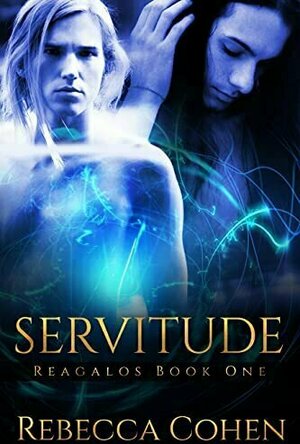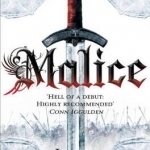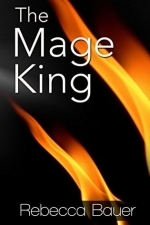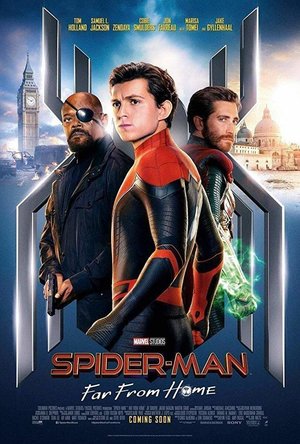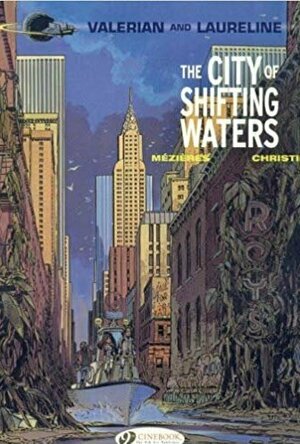Search
Merissa (13749 KP) rated Servitude (Reagalos #1) in Books
Sep 2, 2021 (Updated Jul 14, 2023)
SERVITUDE is the first book in the Reagalos series and we are introduced to a fantasy world where para-dimensional mathematics and portals are known and utilised.
Lornyc is the heir to the High Lord of Reagalos although no one knows about it. Methian is the heir to the Xenetra realm and has a reputation as a playboy. Keeping their relationship secret is the norm for them, until magical contracts turn up out of the blue, ensuring Lornyc becomes Methian's valet, plus other contracts to other realms he can't get out of. And then there are the whole treachery and assassination attempts to contend with.
What you have is a book that will hold your interest. There are numerous characters for you to learn about, political situations, marriages, you name it. The beginning was a bit bumpy for me and I had to work at it as I felt I had arrived halfway through already. Once you get past that, it becomes intriguing and will get you turning the pages.
I hope to see more of Methian in future books as I feel he could be a really strong character in his own right, rather than 'just' a consort. He is also heir to his own realm so... yep, I'd like to see more of him. Vella is another great character - loyal to her family, dangerous to those who cross her or those she loves.
A great, solid start to the series and I look forward to moving on from here. Definitely recommended by me.
** same worded review will appear elsewhere **
* A copy of this book was provided to me with no requirements for a review. I voluntarily read this book, and the comments here are my honest opinion. *
Merissa
Archaeolibrarian - I Dig Good Books!
Sep 2, 2021
Lornyc is the heir to the High Lord of Reagalos although no one knows about it. Methian is the heir to the Xenetra realm and has a reputation as a playboy. Keeping their relationship secret is the norm for them, until magical contracts turn up out of the blue, ensuring Lornyc becomes Methian's valet, plus other contracts to other realms he can't get out of. And then there are the whole treachery and assassination attempts to contend with.
What you have is a book that will hold your interest. There are numerous characters for you to learn about, political situations, marriages, you name it. The beginning was a bit bumpy for me and I had to work at it as I felt I had arrived halfway through already. Once you get past that, it becomes intriguing and will get you turning the pages.
I hope to see more of Methian in future books as I feel he could be a really strong character in his own right, rather than 'just' a consort. He is also heir to his own realm so... yep, I'd like to see more of him. Vella is another great character - loyal to her family, dangerous to those who cross her or those she loves.
A great, solid start to the series and I look forward to moving on from here. Definitely recommended by me.
** same worded review will appear elsewhere **
* A copy of this book was provided to me with no requirements for a review. I voluntarily read this book, and the comments here are my honest opinion. *
Merissa
Archaeolibrarian - I Dig Good Books!
Sep 2, 2021
Ross (3284 KP) rated Malice: Book One of the Faithful and the Fallen in Books
Dec 1, 2017
The action (1 more)
The hints of the epic story still to come
The number of characters and places to try and remember (1 more)
A little long and derivative
This book, the first in a series of four, chronicles the beginning hints at the coming God-War, a time when the forces of good and evil will battle for the world (pretty standard fantasy fayre), with prophecies unfolding and battles for thrones.
The book moves between different character PoVs, which is fairly common these days, but I found some of the characters to be indistinguishable. For the first third of the book, if the PoV was Camlin, Kastell or Veradis I struggled to remember who he was or what he had been doing. This did start to improve around the halfway mark, but it is quite a slog at times to remember the events preceding this chapter.
The bulk of the book, however, follows Corban, a young blacksmith's son hoping to become a warrior some day, but is stuck working his da's forge, helping stablemaster Gar or apprenticing to healer Brina. His development over the book is well told, he doesn't suddenly become a master swordsman but at the same time we don't have to sit through chapter after chapter of him learning sword forms (Rand al Thor could learn a lot from Corban!).
Along the way, Corban has also become friends with a wild wolven (giant wolves hunted near extinction), whom he raised from a pup. Yes, exactly like the Stark children in GoT. Leave it.
The political intrigue and manoeuvring throughout the book is great as events seeming to be based on one king/queen's ambitions actually turn out to be based on another's treachery.
The battle scenes are well told and believable without the main characters always escaping unscathed.
The book finished with a number of deceptions uncovered and the main group of characters fleeing for their lives, with more secrets to be uncovered.
The book moves between different character PoVs, which is fairly common these days, but I found some of the characters to be indistinguishable. For the first third of the book, if the PoV was Camlin, Kastell or Veradis I struggled to remember who he was or what he had been doing. This did start to improve around the halfway mark, but it is quite a slog at times to remember the events preceding this chapter.
The bulk of the book, however, follows Corban, a young blacksmith's son hoping to become a warrior some day, but is stuck working his da's forge, helping stablemaster Gar or apprenticing to healer Brina. His development over the book is well told, he doesn't suddenly become a master swordsman but at the same time we don't have to sit through chapter after chapter of him learning sword forms (Rand al Thor could learn a lot from Corban!).
Along the way, Corban has also become friends with a wild wolven (giant wolves hunted near extinction), whom he raised from a pup. Yes, exactly like the Stark children in GoT. Leave it.
The political intrigue and manoeuvring throughout the book is great as events seeming to be based on one king/queen's ambitions actually turn out to be based on another's treachery.
The battle scenes are well told and believable without the main characters always escaping unscathed.
The book finished with a number of deceptions uncovered and the main group of characters fleeing for their lives, with more secrets to be uncovered.
Merissa (13749 KP) rated The Mage King (The Ice Queen #2) in Books
Jul 21, 2017
The Mage King (The Ice Queen #2) by Rebecca Bauer
The Mage King is the second book in The Ice Queen series, and we return to see what Aria and Cas are up to, two years after we last saw them. They are now proud parents of Elena, although Cas seems to have taken to it a bit easier than Aria has done. They have worked hard for peace, but it seems like the mages are up to their tricks again. Not only that, but the magic of the mages seems to be failing. It becomes apparent that those who are not having problems (like Cas) may have a different blood line than others. Not only that, but King Liam from the west is making his way eastwards, and no one is quite sure why.
So much happens in this book, and yet it is easy to follow and is not unnecessarily complicated. Aria and Cas continue to go from strength to strength, no matter what is thrown at them. Their love and trust in each other is a strength that others just don't understand, and yet I adore it! They are not saccharine sweet, one of the things I love about Aria is her razor-sharp tongue, but are unfailing honest and loyal although they both play the deception/political game with style and finesse.
I refuse to give out any spoilers about this book. Trust me, you will want to immerse yourself in the Ice Realm, along with the other places, just like you did with The Ice Queen. I will say that there were no editing or grammatical errors that disrupted my reading flow. Once again, this is an exceptional adult fantasy that I highly recommend.
* A copy of this book was provided to me with no requirements for a review. I voluntarily read this book, and my comments here are my honest opinion. *
Merissa
Archaeolibrarian - I Dig Good Books!
So much happens in this book, and yet it is easy to follow and is not unnecessarily complicated. Aria and Cas continue to go from strength to strength, no matter what is thrown at them. Their love and trust in each other is a strength that others just don't understand, and yet I adore it! They are not saccharine sweet, one of the things I love about Aria is her razor-sharp tongue, but are unfailing honest and loyal although they both play the deception/political game with style and finesse.
I refuse to give out any spoilers about this book. Trust me, you will want to immerse yourself in the Ice Realm, along with the other places, just like you did with The Ice Queen. I will say that there were no editing or grammatical errors that disrupted my reading flow. Once again, this is an exceptional adult fantasy that I highly recommend.
* A copy of this book was provided to me with no requirements for a review. I voluntarily read this book, and my comments here are my honest opinion. *
Merissa
Archaeolibrarian - I Dig Good Books!
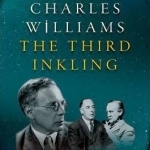
Charles Williams: The Third Inkling
Book
This is the first full biography of Charles Williams (1886-1945), an extraordinary and controversial...
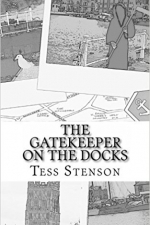
The Gatekeeper on the Docks
Book
Nigel isn’t finding his work particularly fulfilling these days. Being a Gatekeeper to the dead...
James P. Sumner (65 KP) rated Spider-Man: Far From Home (2019) in Movies
Jul 10, 2019
The MCU delivers again!
Tom Holland reprises his role as the friendly neighbourhood Spiderman in this enjoyable final entry in the MCU's third phase.
Picking up where Avengers: Endgame left off, the world is slowly getting back on its feet after Thanos' handiwork was reversed. Peter Parker is on a school trip across Europe when huge Elemental enemies attack. He's unprepared, but the day is saved by Mysterio - a superhero from an alternate universe.
So far, so Marvel.
Twists and turns follow, with plenty of action throughout. The storyline reminded me of Iron Man 3 in some ways, in terms of it's structure and style. The visuals were impressive as always. The acting was spot-on, with Happy returning in a comic relief/mentor role that worked really well alongside the hero.
The great thing about all the Marvel movies is how they distinguish themselves from each other. Aside from being just comic book movies, each individual series has its own themes and genre. Guardians of the Galaxy is sci-fi/action/comedy, Captain America is more political/action, Thor is fantasy, etc... Spiderman fills the gap for a teen drama, appealing to the younger audience by giving them the angst and romance they crave and relate to. The relationship between Peter and MJ is explored in greater detail here, and their on-screen awkward is fun to watch, but also believable - largely, I suspect, due to the pair's off-screen friendship. Their chemistry is brilliant and really adds to the movie.
As with all Marvel movies, it ain't over 'til it's over. The mid-credits scene does a truly fantastic job of setting up the third movie in the series, while the post-credits scene teases at the future of the wider MCU.
Marvel has had numerous hits with only a small handful of near-misses. Spiderman: Far From Home is a resounding hit and not to be missed!
Picking up where Avengers: Endgame left off, the world is slowly getting back on its feet after Thanos' handiwork was reversed. Peter Parker is on a school trip across Europe when huge Elemental enemies attack. He's unprepared, but the day is saved by Mysterio - a superhero from an alternate universe.
So far, so Marvel.
Twists and turns follow, with plenty of action throughout. The storyline reminded me of Iron Man 3 in some ways, in terms of it's structure and style. The visuals were impressive as always. The acting was spot-on, with Happy returning in a comic relief/mentor role that worked really well alongside the hero.
The great thing about all the Marvel movies is how they distinguish themselves from each other. Aside from being just comic book movies, each individual series has its own themes and genre. Guardians of the Galaxy is sci-fi/action/comedy, Captain America is more political/action, Thor is fantasy, etc... Spiderman fills the gap for a teen drama, appealing to the younger audience by giving them the angst and romance they crave and relate to. The relationship between Peter and MJ is explored in greater detail here, and their on-screen awkward is fun to watch, but also believable - largely, I suspect, due to the pair's off-screen friendship. Their chemistry is brilliant and really adds to the movie.
As with all Marvel movies, it ain't over 'til it's over. The mid-credits scene does a truly fantastic job of setting up the third movie in the series, while the post-credits scene teases at the future of the wider MCU.
Marvel has had numerous hits with only a small handful of near-misses. Spiderman: Far From Home is a resounding hit and not to be missed!
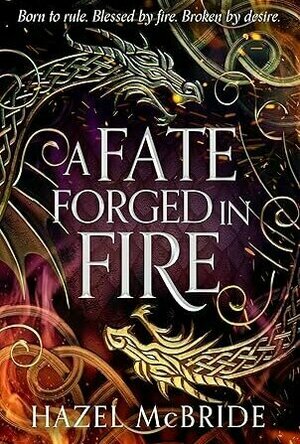
A Fate Forged in Fire (Bonded to Beasts #1)
Book
❤️🔥 BORN TO RULE. BLESSED BY FIRE. BROKEN BY DESIRE... DISCOVER THE NEW ROMANTASY...
Fantasy Romance Dragons Series
Hazel (1853 KP) rated Grave Mercy (His Fair Assassin, #1) in Books
Dec 7, 2018
<i>This eBook was provided by the publisher via NetGalley in exchange for an honest review</i>
<i>Grave Mercy</i> is the first book in Robin LaFevers’ trilogy <i>His Fair Assassin</i> set in Brittany in the middle ages. Young Ismae Rienne escapes from her new, abusive husband to the sanctuary of the convent of St. Mortain, where she learns that she was sired by the god of death. She, like the other sisters of the convent, has been blessed with certain gifts as a result. Their job is to be the handmaidens of death and help to kill people on behalf of St. Mortain.
Ismae’s task is to live in the high courts with a man named Gavriel Duval in order to remove the traitors that threaten the soon to be crowned duchess, Anne. While she is there she begins to suspect that one of the allies is a traitor, but whom? She also begins to fall in love and feels torn in two when the convent demands his death.
It takes a long time to understand what is going on in <i>Grave Mercy</i> especially as a lot of it involves politics of an era of long ago. Towards the end it begins to become more exciting once the reader has worked out who are the good characters and who are the bad and all that is left is to discover how it all resolves itself.
There is something about death and murder in historical fiction that is more gruesome than in contemporary novels. This is another reason why the book was difficult to read.
Initially the amount of names listed on the “Dramatis Personae” at the start of the book was a little daunting however not all of them are key to the plot. The main character, Ismae, is likable and her strength and independence is admirable especially as women did not have much control over their lives at that time. Most of the other characters also existed in real life as, although in part a fantasy novel, LaFevers’ has kept it as historically accurate as possible.
Looking at the reviews on <i>Goodreads</i>, over 900 readers have listed <i>Grave Mercy</i> as Young Adult. After reading the book there is nothing to suggest that it was written for that age group. Admittedly the characters are very young: Ismae, 17, and Anne, 12; but in the 1400s they would have seemed older than society regards people of that age today. The romantic element of the novel is the kind you would expect to find in adult historical novels rather than books for younger readers.
Overall this is a book for people who appreciate historical and political fiction but also like an element of fantasy and romance. It is written really well but to be able to engage fully with the story you need to be really interested in the subject matter.
<i>Grave Mercy</i> is the first book in Robin LaFevers’ trilogy <i>His Fair Assassin</i> set in Brittany in the middle ages. Young Ismae Rienne escapes from her new, abusive husband to the sanctuary of the convent of St. Mortain, where she learns that she was sired by the god of death. She, like the other sisters of the convent, has been blessed with certain gifts as a result. Their job is to be the handmaidens of death and help to kill people on behalf of St. Mortain.
Ismae’s task is to live in the high courts with a man named Gavriel Duval in order to remove the traitors that threaten the soon to be crowned duchess, Anne. While she is there she begins to suspect that one of the allies is a traitor, but whom? She also begins to fall in love and feels torn in two when the convent demands his death.
It takes a long time to understand what is going on in <i>Grave Mercy</i> especially as a lot of it involves politics of an era of long ago. Towards the end it begins to become more exciting once the reader has worked out who are the good characters and who are the bad and all that is left is to discover how it all resolves itself.
There is something about death and murder in historical fiction that is more gruesome than in contemporary novels. This is another reason why the book was difficult to read.
Initially the amount of names listed on the “Dramatis Personae” at the start of the book was a little daunting however not all of them are key to the plot. The main character, Ismae, is likable and her strength and independence is admirable especially as women did not have much control over their lives at that time. Most of the other characters also existed in real life as, although in part a fantasy novel, LaFevers’ has kept it as historically accurate as possible.
Looking at the reviews on <i>Goodreads</i>, over 900 readers have listed <i>Grave Mercy</i> as Young Adult. After reading the book there is nothing to suggest that it was written for that age group. Admittedly the characters are very young: Ismae, 17, and Anne, 12; but in the 1400s they would have seemed older than society regards people of that age today. The romantic element of the novel is the kind you would expect to find in adult historical novels rather than books for younger readers.
Overall this is a book for people who appreciate historical and political fiction but also like an element of fantasy and romance. It is written really well but to be able to engage fully with the story you need to be really interested in the subject matter.
EmersonRose (320 KP) rated The City of Shifting Waters (Valérian and Laureline, #1) in Books
Nov 20, 2019
On July 21, 2017, Valerian and the City of a Thousand Planets came out in theaters the U.S. After watching the movie I found myself intrigued by the characters, world, and the passion shown by the director and writer Luc Besson showed for the project. I took this interest and decided to start reading the comic books. Thus far I have been able to read three of the volumes, as they are French comics they are not usually kept in stores and I have to order them.
The Valerian and Laureline comics follow Valerian, a handsome and cocky time and space traveler, and Laureline, his stubborn and beautiful partner. They travel together across space and time on missions for Galaxity, the capital of the Terran Empire in the 28th century. They explore strange worlds with fascinating creatures, deal with complicated political situations, and take the reader through rewritten history.
I immediately fell in love with the comics for the same reasons I enjoyed the film. The first is that the world that author Pierre Christin and artist Jean-Claude Mezieres created is truly fantastical. It falls under the same sci-fi mixed with fantasy genre that Star Wars is under. The great space galaxy is full of planets that are home to a wide range of alien species, each with complicated politics, cultures, and aesthetics.
The second reason is that I love the relationship between Valerian and Laureline. I am a very character driven person in both my reading and writing so I am a sucker for a good relationship, romantic, familial, or friendship. Valerian and Laureline start the first comic playing chess. Valerian is cocky and does not like to lose, but he is kind and smart and works hard to make the world a better place. Laureline is funny, stubborn, and unlike Valerian, she does not feel the same sense of loyalty to the Terran Empire and therefore is okay with bending the rules to save the most people. They make for a great team, and their fun banter adds to the overall charm of the story.
7810429The first issue of the series was released in 1967 and ran till 2010. Initially, all were written in French but has since been translated into English and several other languages. This series plays with a lot of the sci-fi/fantasy tropes that make you fall in love with stories in the genre, and has even been compared to Star Wars as the basis for several of the ideas used in the Star Wars films, such as the look of some of the characters and situations characters find themselves in.
This is a fun and exciting comic series that got me into reading101694 comics in the first places. I will certainly be continuing my reading of these books so that I can continue being apart of the Valerian and Laureline story. I also enjoyed the film and hope that the passion the Luc Besson showed will be enough to allow him to make another film in the series.
I would highly recommend this series!
The Valerian and Laureline comics follow Valerian, a handsome and cocky time and space traveler, and Laureline, his stubborn and beautiful partner. They travel together across space and time on missions for Galaxity, the capital of the Terran Empire in the 28th century. They explore strange worlds with fascinating creatures, deal with complicated political situations, and take the reader through rewritten history.
I immediately fell in love with the comics for the same reasons I enjoyed the film. The first is that the world that author Pierre Christin and artist Jean-Claude Mezieres created is truly fantastical. It falls under the same sci-fi mixed with fantasy genre that Star Wars is under. The great space galaxy is full of planets that are home to a wide range of alien species, each with complicated politics, cultures, and aesthetics.
The second reason is that I love the relationship between Valerian and Laureline. I am a very character driven person in both my reading and writing so I am a sucker for a good relationship, romantic, familial, or friendship. Valerian and Laureline start the first comic playing chess. Valerian is cocky and does not like to lose, but he is kind and smart and works hard to make the world a better place. Laureline is funny, stubborn, and unlike Valerian, she does not feel the same sense of loyalty to the Terran Empire and therefore is okay with bending the rules to save the most people. They make for a great team, and their fun banter adds to the overall charm of the story.
7810429The first issue of the series was released in 1967 and ran till 2010. Initially, all were written in French but has since been translated into English and several other languages. This series plays with a lot of the sci-fi/fantasy tropes that make you fall in love with stories in the genre, and has even been compared to Star Wars as the basis for several of the ideas used in the Star Wars films, such as the look of some of the characters and situations characters find themselves in.
This is a fun and exciting comic series that got me into reading101694 comics in the first places. I will certainly be continuing my reading of these books so that I can continue being apart of the Valerian and Laureline story. I also enjoyed the film and hope that the passion the Luc Besson showed will be enough to allow him to make another film in the series.
I would highly recommend this series!
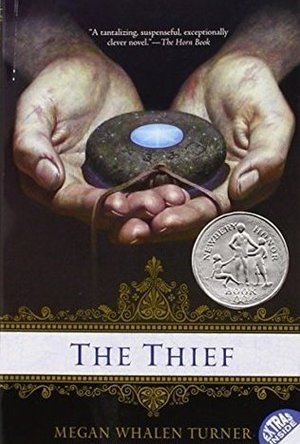
The Thief (The Queen's Thief #1)
Book
Discover the world of the Queen's Thief New York Times-bestselling author Megan Whalen Turner's...
